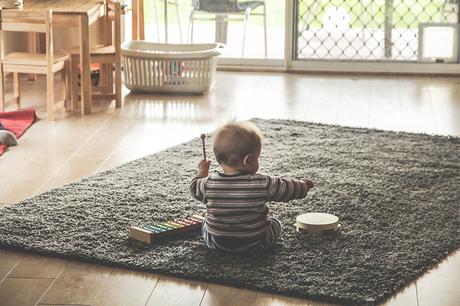
Your home environment should be a safe shelter where you and your children remain secure and healthy at all times. However, many children are injured or worse at home. Some accidents cannot be prevented, but many injuries and fatalities could have been prevented if parents had taken smart steps to secure the home in different ways. Even if you believe that your home environment is as safe as possible right now, it makes sense to take a closer look at potential dangers and to make a few thoughtful changes as they may apply to your home.
Adjust Your Hot Water Heater Settings
Hot water is essential for cooking, cleaning and bathing. Without access to hot water on demand from your faucets and other plumbing features, you may be severely inconvenienced in various ways. Under typical situations, you may adjust hot and cold water knobs to achieve a desired water temperature. However, many parents lose track of the temperature of water in baths, and some have unintentionally scalded their children by placing them in a bathtub filled with scorching water. You can avoid running into this type of situation by simply adjusting the hot water heater setting on your water heater tank. A good idea is to keep the temperature setting on your hot water heater at or below 120 degrees Fahrenheit. In addition to focusing on the temperature of your hot water heater settings, remember to always stay with children when they are in or around water. Drowning can occur in only a few inches of water, and it may occur very quickly.
Focus on the Electrical System
Your home's electrical system is another essential component that directly affects your comfort and convenience in the home. However, it also presents risks related to electrical shock or electrocution as well as electrical fires. All outlets should be covered by protective child safety features. Cords should be checked regularly for signs of damage or fraying. If you notice any signs of a short in your home's interior wiring, you should hire the best electrician for repair work as soon as possible. Keep in mind that an outlet or light that suddenly stops working may be a sign of damaged wiring inside your wall. You may even contact an electrician for an annual inspection of your entire system. Through this type of service, the electrician may identify and address potential hazards that you may not yet be aware of.
Have a Waste Management Plan
You and your family members generate a substantial amount of waste each day. This may be human waste that is eliminated through the sewer system. It may also be consumer waste. When waste is not properly removed from your property on a regular basis, there may be in increased risk of health issues. For example, a sewage system backup can spread pathogens throughout the home. This type of issue may cause serious health problems and requires an immediate response from a plumber as well home cleanup service. Likewise, when consumer waste in a home builds up, it can become a breeding ground for pathogens, pests and rodents. The likelihood of home occupants developing illnesses in a home that is filled with waste may be must more significant than in a home that is free of waste.
Clean Thoroughly and Regularly
Cleaning thoroughly and regularly is essential for waste management, and it also is necessary for other reasons. Even a home that appears to be clean on the surface may actually be filthy with microbes and pathogens. For example, if you do not regularly clean and disinfect kitchen counters and other surfaces, salmonella and other pathogens may be present. These pathogens can cause serious illness or worse. Any surface on the home can be contaminated, including toilet handles, sink faucets, door knobs and other surfaces that may commonly be touched. Another important aspect of a clean home is indoor air quality. Your HVAC system's air filters must be replaced regularly, and a carbon monoxide detector may be installed to further ensure superior air quality.
Invest in Monitors and Detectors
A carbon monoxide detector is only one of several monitors and detectors that your home may need. Many homes have at least one fire or smoke detector, but your home may benefit from having a few additional detectors installed. For example, each bedroom and hallway should have its own detector. Radon is another danger that can be detected by a monitor. This is a dangerous, natural gas that is clear and odorless. It can result in serious health issues. Remember to replace the batteries in your monitors and detectors regularly to ensure proper function.
Keep Doors and Windows Locked
Another aspect of a safe home environment that may be easy to overlook relates to your home's doors and windows. Younger children may open doors and windows without your knowledge. This can create a serious risk of falling on the second floor of a home. On a first floor, it could lead to a child running out of the house unattended. You may also need to keep doors inside the home locked. For example, you may have an exercise room that is filled with heavy or dangerous equipment that could result in injury to a child. Along these same lines, consider investing in childproof cabinet and drawer features. Many of the drawers and cabinets in your home may be filled with items that could potentially be dangerous to children.
Remember that these are only some of the many dangers that your children may be exposed to in your home. Each home has unique features and elements, so it is important that parents carefully analyze their specific environment. Consider looking at the environment from the eyes of a child so that you can detect potential risks that should be addressed as soon as possible. With your focus and attention in these areas, you may create a safe home environment that serves as a secure shelter for you and your family members.
